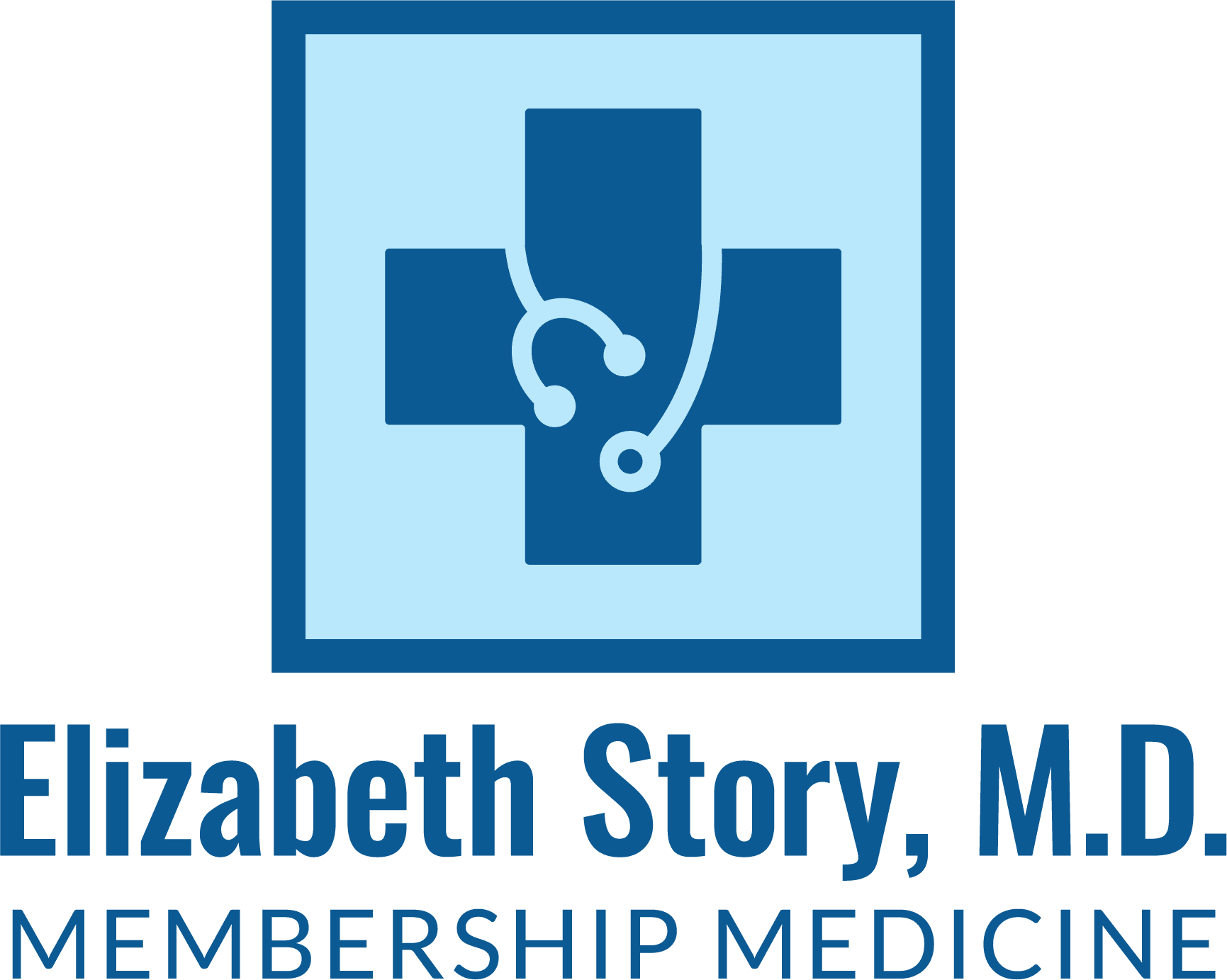LONGEVITY: HEALTHSPAN AND LIFESPAN
Experience the Best Care at Elizabeth Story, M.D.



One of the more recent updates to the practice has been a targeted approach to achieving true longevity. Our goal is to keep people active and healthy for as many years as possible. We’ve learned that targeted, preventative care can transform both the lifespan and healthspan of an individual.
As part of my membership medicine practice, you will receive proactive, preventative medical care. In my office, I provide access to body composition monitoring and lab orders for extensive laboratory testing in addition to ongoing whole-person healthcare.
I can help you integrate your exercise, nutrition and medications for optimized healthspan and lifespan.

CURRENT “REACTIVE” HEALTHCARE MODEL
The current American healthcare system is very disease-oriented and reactive. Today’s insurance model is flawed and doesn’t begin to address proactive, preventative medicine. We don’t get paid to prevent heart disease, but medical specialists get handsomely rewarded for angiography or ‘heart caths’ especially if done on an emergent basis for an acute myocardial infarction (heart attack). While they should be compensated as they are, they should also be able to spend time with patients BEFORE these events happen to help prevent them from occurring in the first place.
Another good example of our reactive and not proactive system is not screening for osteoporosis till women are age 65! This should be started at age 50 at a minimum, and even then there can already be bone loss happening throughout the years leading up to menopause. And, we are taught to wait until your LDL cholesterol (sometimes called ‘bad’ cholesterol) is a certain level before initiating statin therapy.
THE NEED FOR PREVENTATIVE CARE
 Doctors don’t get paid to have preventative conversations with patients (other than the one that Medicare pays for to plan for end of life). However, I start to talk to my patients in their 20s and 30s about lifestyle and that what they do now lays a critical foundation for how long and how active their life will be. Doctors get less than an average of 12 minutes per patient visit and this includes the exam and all patient questions and the doctor’s answers. I used to have to limit my patients to three problems and even then I never had enough time.
Doctors don’t get paid to have preventative conversations with patients (other than the one that Medicare pays for to plan for end of life). However, I start to talk to my patients in their 20s and 30s about lifestyle and that what they do now lays a critical foundation for how long and how active their life will be. Doctors get less than an average of 12 minutes per patient visit and this includes the exam and all patient questions and the doctor’s answers. I used to have to limit my patients to three problems and even then I never had enough time.
Medical decision making is what we as physicians are paid for and that includes taking histories, doing exams, interpreting studies, coming up with the diagnosis, and then really hashing out the risks and benefits of a treatment plan. At my practice, the minimum visit is 30 minutes and the initial visit and annual exams are all an hour long. When was the last time you had a full hour of a physician’s undivided attention?
PRENUVO PARTNERSHIP
 Dr. Story is pleased to partner with Prenuvo, a pioneering healthcare company offering advanced whole-body MRI scans designed for the early detection of cancer and other serious conditions. With Prenuvo’s state-of-the-art mobile clinics providing a full-body, radiation-free MRI scan in under an hour with no harmful dyes required, you can access proactive health screenings that empower you to take control of your well-being. Following the scan, results are forwarded to Dr. Story who will go over them with you in person.
Dr. Story is pleased to partner with Prenuvo, a pioneering healthcare company offering advanced whole-body MRI scans designed for the early detection of cancer and other serious conditions. With Prenuvo’s state-of-the-art mobile clinics providing a full-body, radiation-free MRI scan in under an hour with no harmful dyes required, you can access proactive health screenings that empower you to take control of your well-being. Following the scan, results are forwarded to Dr. Story who will go over them with you in person.
UPCOMING LONGEVITY UPDATES ON OUR FACEBOOK PAGE
 Follow me on Facebook and Instagram and there will be more posts about the USPSTF government task force and why some recommendations are appropriate, and some are just plain wrong. I will also post about longevity and specific reasons why your PCP (who is ‘covered’ under your insurance plan) can’t give you the time you need to truly take care of you, even though it isn’t their fault.
Follow me on Facebook and Instagram and there will be more posts about the USPSTF government task force and why some recommendations are appropriate, and some are just plain wrong. I will also post about longevity and specific reasons why your PCP (who is ‘covered’ under your insurance plan) can’t give you the time you need to truly take care of you, even though it isn’t their fault.
